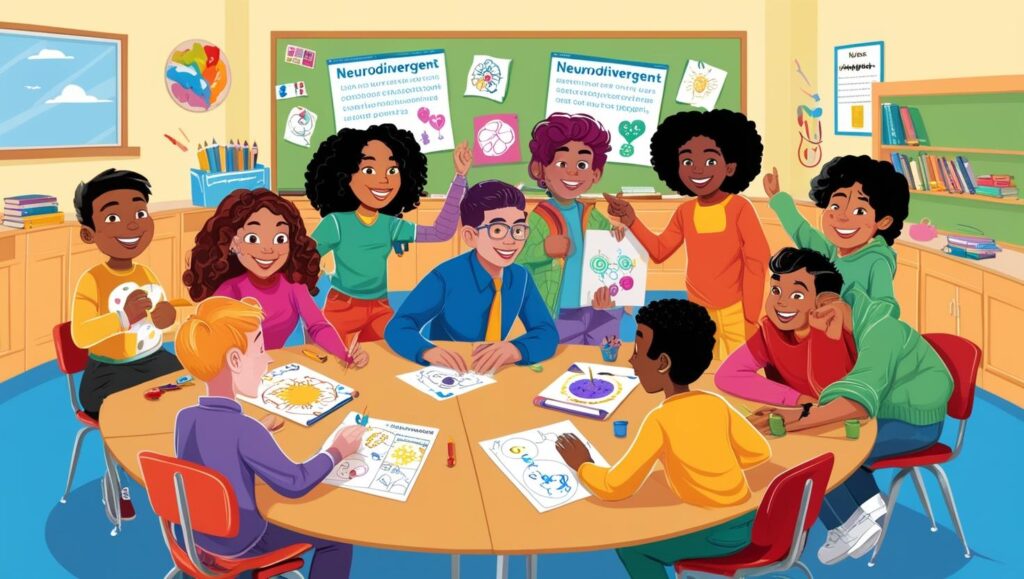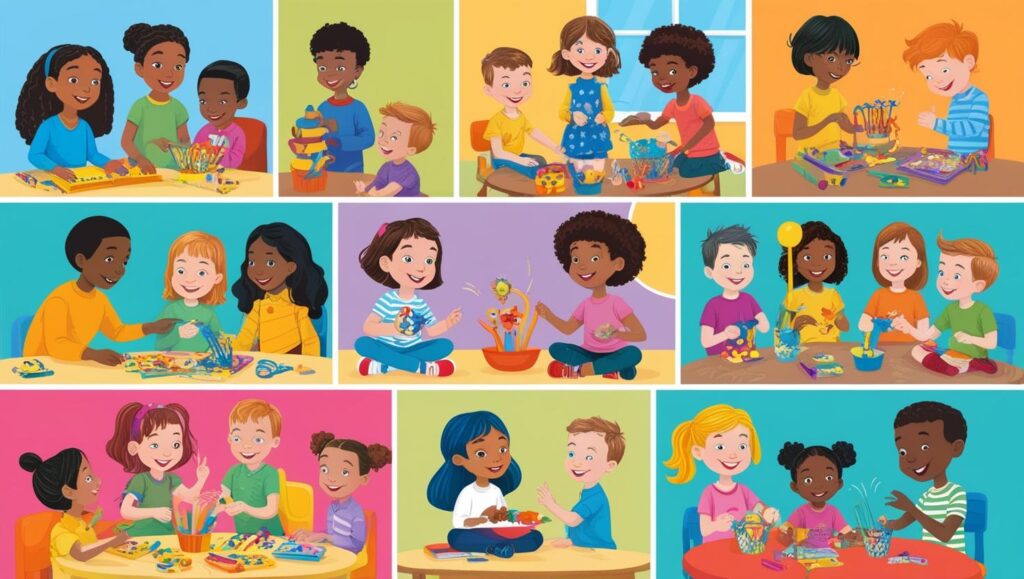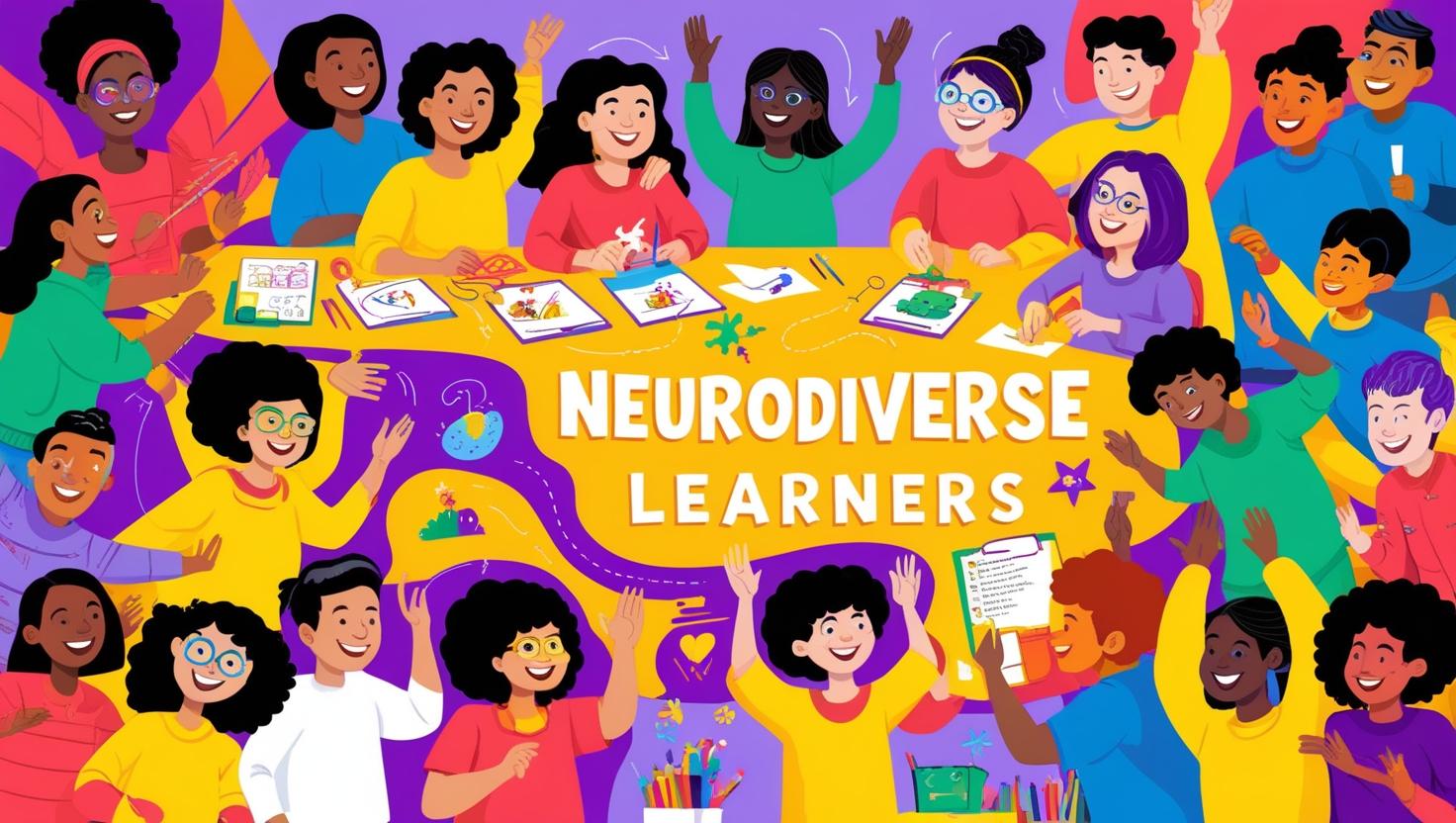
Supporting neurodivergent learners requires a unique blend of empathy, strategy, and collaboration. Whether you’re a parent, teacher, or caregiver, every interaction with a neurodivergent child is an opportunity to foster growth, connection, and confidence. While there’s no “one-size-fits-all” approach, there are foundational principles that can guide us in empowering these learners.
At the heart of this framework is an understanding that every child learns differently and has extraordinary potential waiting to be unlocked with the right support. Below, we detail seven practical principles that can help educators and caregivers create nurturing environments for neurodivergent children.
1. Structure Builds Safety

Imagine stepping into an unfamiliar environment with no instructions on what to expect. It’s overwhelming, right? For neurodivergent learners, a lack of structure can cultivate anxiety and uncertainty.
A predictable routine helps create a sense of safety. Tools like visual schedules, consistent transitions, and clearly defined expectations allow children to confidently anticipate what’s coming next. At home or in the classroom, consider creating visual aids or using timers to clearly communicate daily routines. While this structure is important, flexibility within these boundaries is equally valuable.
2. Behavior Is Communication

All behavior conveys a message, whether it comes from a verbal or nonverbal child. Instead of focusing on correcting behavior, ask yourself, “What is this child trying to tell me?”
For example, a meltdown may signal sensory overload, frustration, or a need for attention. Viewing behavior through a compassionate lens enables us to approach challenges with empathy, addressing the root cause rather than responding to the surface behavior.
By actively listening to neurodivergent learners, caregivers can unlock a deeper understanding of their needs while cultivating trust and connection.
3. Reinforcement Builds Relationships

Small victories deserve big celebrations. Children thrive when they feel seen and valued. Positive reinforcement is one of the most effective ways to encourage desired behaviors while building meaningful relationships.
Reinforcement could be as simple as verbal praise (“Great job sharing!”), or as personalized as offering a favorite activity, a sensory break, or a moment of connection. A consistent practice of recognizing and celebrating effort allows children to feel confident in their abilities.
4. Individualized Support Matters

No two learners are exactly alike. What motivates one child may not resonate with another. Recognizing these individual differences is crucial to meaningful engagement.
For instance, some children may benefit from sensory tools like noise-canceling headphones, while others might respond best to communication through pictures or assistive technology. Tailor your approach to each child’s preferences, needs, and learning style.
Remember, individualized support isn’t just about academic success; it includes fostering social, emotional, and sensory well-being too.
5. Collaboration Is Key

It’s often said that “it takes a village to raise a child,” and nowhere is this more true than in supporting neurodivergent learners. When families, educators, and therapists work together, they create a cohesive and supportive environment across all settings.
Share insights, observations, and strategies with one another. An open line of communication ensures everyone involved is aligned on goals and strategies. Regular team meetings or updates can keep everyone in sync and focused on what matters most.
6. Learning Should Feel Like Success

Children learn best when they feel successful. Meeting children where they are and breaking goals into smaller, manageable steps creates a sense of achievement and builds momentum toward larger milestones.
For example, instead of teaching a child to read a full paragraph right away, focus on a single sentence. Gradual progress boosts confidence and fosters a lifelong love of learning.
Aspire to create environments where each step forward, no matter how small, is celebrated. This nurtures children’s self-esteem and motivates them to keep trying.
7. Caregivers Deserve Support Too

Supporting neurodivergent learners can be deeply rewarding, but it can also be emotionally and physically demanding. Caregivers must care for their well-being to continue showing up for the children they support.
Take time to reflect, recharge, and connect with peers who share similar experiences. Whether it’s attending training sessions, joining a support group, or simply taking short, restorative moments in your day, prioritizing your wellness is essential.
When caregivers feel supported, they are better equipped to create calm, connected, and nurturing environments for their learners.
A Foundation for Growth
These principles are grounded in widely accepted practices and infused with compassion. They are not rigid rules but flexible guiding lights that can be adapted to meet the unique needs of each neurodivergent child.
By incorporating these strategies and perspectives into your approach, you can cultivate a space where children feel safe, empowered, and free to reach their full potential. Together, we can help build a future where every child is supported to learn, grow, and shine.
Are you ready to take the next step in empowering progress for neurodivergent learners? Reach out to your community or professional networks for resources or find specialized programs like MindMeld’s Aspire, where expert-led strategies and caregiver support come together to make a difference.
When we lead with empathy, individualization, and connection, we truly honor the remarkable potential of every neurodivergent learner.
External Links:
- Supporting the Needs of Neurodivergent Students: This article emphasizes teaching students to set and reflect upon academic goals to track their progress.
- Supporting Neurodiverse Students Through Course Design: This resource discusses neurodiversity in students and how to support neurodiverse learners through course design.
- Neurodiversity in the Classroom: a Teacher’s Guide: This guide provides practical strategies for educators to create inclusive classrooms where all learners can thrive.
- Supporting neurodiversity in education: This article promotes meaningful interactions between neurotypical and neurodivergent individuals to combat misconceptions and biases.
- 5 ways educators can support neurodiverse students: This blog post highlights the importance of developing a psychologically safe classroom to remove barriers to participation.

